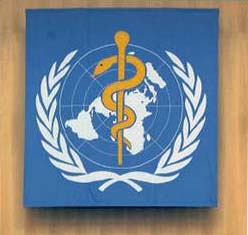WHO: No need for travel, pork import restrictions
 Geneva - World Health Organization officials reiterated Tuesday that travel restrictions would not help stem the spread of the swine influenza virus. "Border controls don't work, screenings don't work," said spokesman Gregory Hartl, speaking to reporters in Geneva. "Travel restrictions do not help."
Geneva - World Health Organization officials reiterated Tuesday that travel restrictions would not help stem the spread of the swine influenza virus. "Border controls don't work, screenings don't work," said spokesman Gregory Hartl, speaking to reporters in Geneva. "Travel restrictions do not help."
In response to action by some countries which have banned pork from Mexico and some US states, the WHO reaffirmed that it did not recommend such moves.
"There is no danger from eating pork. If you cook pork well, any meat well, it kills any virus," Hartl said.
The WHO was still only able to confirm 26 cases in Mexico, of which seven were lethal and 12 resulted in severe illness. In the United States, the organization confirmed 40 cases and another six in Canada. The UN agency confirmed one case in Spain.
Statistics from the US and Mexico placed the number higher.
Reports from Israel also indicated there was one confirmed illness there, also an "imported case," meaning the person was infected in Mexico.
"We are still looking for the origins of the virus," Harlt noted, adding that the limited number of confirmed cases was hampering efforts to locate the source or multiple points of origin.
The night before, the WHO had increased its pandemic influenza alert status to phase 4, up one step from its previous level, indicating sustained human-to-human transmission. This was one step closer to declaring a pandemic situation, but indicated that such a dire declaration was not inevitable.
Epidemiological studies showed three small waves of human-to-human transmission in Mexico and the WHO suspected similar transmissions in other areas, including possibly in New York.
So far, there was little indication the spread of the virus was connected to contact with pigs.
There were no estimates on the fatality of the virus, Hartl said, adding that experts were still trying to solve the riddle of why the only deaths so far have been in Mexico. Also a mystery was why the fatal cases occured in young, seemingly healthy people.
The WHO has said containment was no longer an option given the widespread geographical reach of the virus and efforts should be focused on protection of people.
"Governments need to start considering treatment plans," he said, including ensuring their supplies of equipment and drugs were sufficient.(dpa)